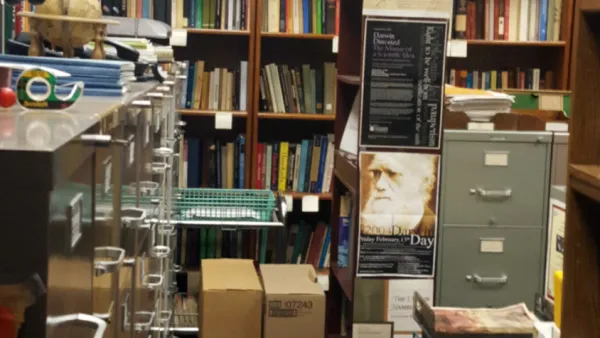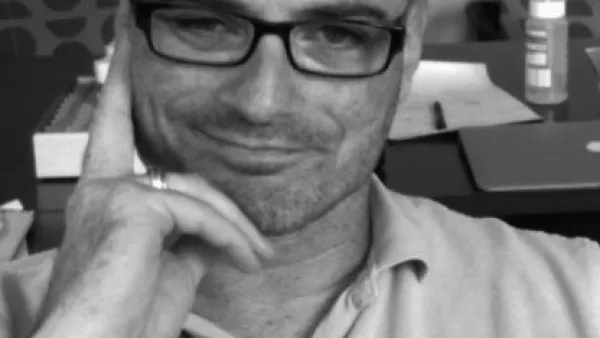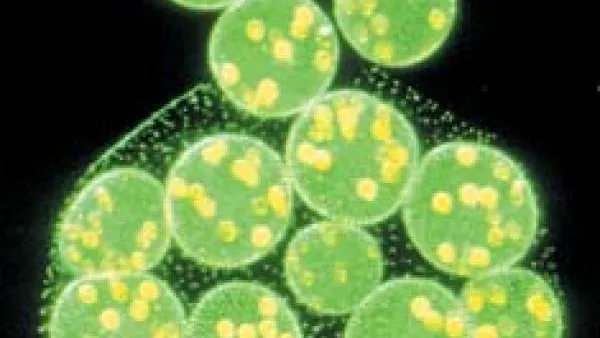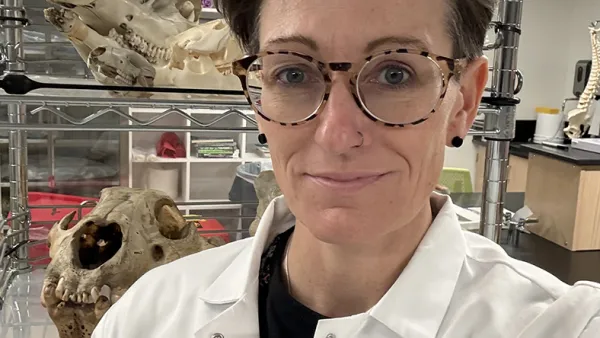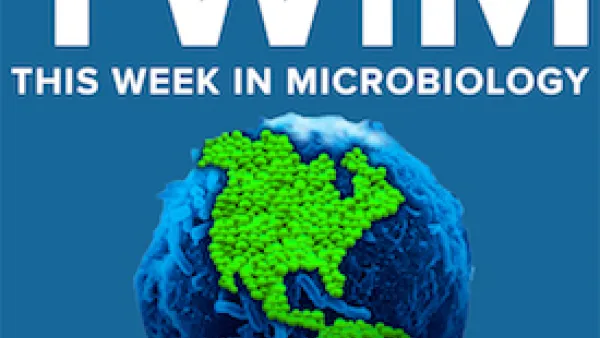When you walk into Professor Emeritus Garland Allen’s office, the first thing you notice is the books. Hundreds and hundreds of books on biology and the history and philosophy of science. Topics span centuries of scientific study and its historical and socio-cultural backdrop.


Shortly after Washington University shifted to COVID lockdown in March and a skeleton crew of essential workers, I received word that Gar would need to downsize and move his office, including several filing cabinets worth of reprints and other documents and over 2000 books that I “catalogued” (that is, made a complete shelf-list by topic so all books could be accounted for and made available for request by various libraries) two summers ago. These things all needed to be done by early June to make way for renovation of the old office space for new Institute for School Partnership staff onboarding July 1, and I was the logical person to assist since I am already familiar with the book collection and how it’s organized. All doable things except for one problem: global pandemic. This global pandemic initially kept me from being on campus, kept Gar from flying to St. Louis from his other home in California, and kept staff from the Olin Archives from being on campus to pack files they planned to acquire for their collection.
I’ve been helping Gar with projects over the years and he is a delight to work with, always pleasant and cheerful, not to mention reasonable and flexible, all things that proved important under the circumstances and tight timetable. I was happy to help, but worried about him traveling during the spread of Coronavirus. He would have had over two months to begin this work, but his March visit in relation to helping with the Hall Lecture, was canceled due to lockdown, and he wasn’t able to travel until the end of May, giving us just over two weeks to complete what seemed like an impossible task.
The problem was compounded by word from the Archives that they would not be able to be on campus to help go through files and pack boxes, leaving us to sort, move and pack over 60 banker’s boxes full of files with reprints, book reviews and correspondence, along with Viktor Hamburger’s special files kept by Gar all these years. The Hamburger collection includes letters to his father describing his experience of emigrating to the United States after he lost his position in Germany due to the rise of the Nazis, and some audio-visual materials, including a taped (cassette) interview with Viktor by Gar in the 1980s, and a VHS filming of the Hamburger Centennial (2000), which includes an interview with Viktor in his home. Thankfully, essential staff from Olin was at least able to pick up the boxes for storage.
I use the word “catalogued” above loosely because I am not an actual librarian and the books were not assigned special numbers or even placed in alphabetical order. I simply filled out a spreadsheet list with information about each book including title, author, year published (ranging from 1676 to 2018) and any special notes about them. Gar had the books separated by topic, and the list was numbered in the order the books happened to be on the shelf. He then sent this list to a variety of libraries and institutions to see if they would be interested in acquiring any of the books for their collections. The biggest takers were the Marine Biological Laboratory in Woods Hole, MA, and our own Olin Library.
The project entailed several steps:
1) Pull books for libraries that expressed interest, box them up, and send them to the right places
2) Pack and label over 60 boxes of files and items for the Archives for pickup by Olin
3) Downsize the remaining book collection by 80% and move that 80% to the Biology Commons for a giveaway event later this fall
4) Move the other 20% of the book collection and remaining files and other items to the new, smaller office space

Returning to campus was strange at first, so vacant and eerily quiet everywhere, darkened windows and halls, one-way entrances and exits, and signs about mask requirements in shared spaces. People I barely know or have never met at all, seemed excited to see another person on campus and would always smile (with eyebrows mostly, since we wore masks) and wave happily. After a couple of days, I became comfortable with the new routines including card swiping at every entrance, mask protocol, eating and drinking in a closed room, and talking to people from a distance. If anyone would have described this situation to me four months ago, it would have seemed ridiculous, but now that we are here, I can see everyone adjusting fairly easily as more people return to work. I look forward to seeing all of you again!
Stay tuned for more information about a big book giveaway later this year. In the meantime, see the updates below on projects that Gar is working on, several in collaboration with other Biology faculty members.
Gar Allen's current projects
Alan Templeton and I are co-authors on a Chapter, “Race and Science in the Genomic Era, 1925-Present,” for a volume titled, Cultural History of Heredtiy, edited by University of California sociologist Tanya Golash-Boza for Bloomsbury Academic Press (to be published in 2020). The article demonstrates historically that all attempts to find significant genetic differences between various standard “racial” groups have been based on poor understandings of genetics and have all failed. Alan has summarized current molecular data that shows virtually no difference between human populations of anything like the same scale as found in other groups, such as Chimpanzees, which have clearly defined, separate sub-species (or what used to be called “races.”)
I am also co-author with Allan Larson on a large volume of primary sources on evolutionary biology, titled Evolution since Darwin. The book consists of thirteen topics with a group of 5 or more original papers from the 1860s to the 1970s, with an introductory essay to each topic. We have translated several papers from the original German or French, and edited papers for clarity and reader access. The book will be published as an on-line publication, open access, through Olin Library (which is handling all the on-line production details).
I am currently working on a book on the history of genetics from 1880-1980, tracing the development of the field from the post-Darwinian era through the rise of the Mendelian paradigm and through the development of molecular genetics from the 1940s through the 1980s and the framing of the Human Genome Project. The book is under contract with Harvard University Press. -Gar Allen
